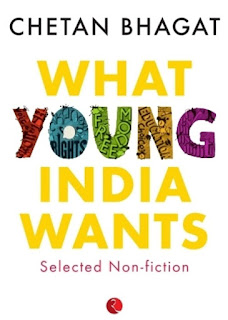William Gladstone and Benjamin Disraeli were two of the
fiercest political rivals of the 19th century. Their epic battles for control
of the British Empire were marked by intense animosity that spilled over from
the public arena into their personal lives. Ambitious, powerful, and
politically astute, both men were spirited competitors and masterful
politicians.
Though each man achieved impressive
accomplishments for Britain, the quality that separated them as leaders was
their approach to people. The difference is best illustrated by the account of
a young woman who dined with the men on consecutive nights. When asked about
her impression of the rival statesmen, she said, "When I left the dining
room after sitting next to Mr. Gladstone, I thought he was the cleverest man in
England. But after sitting next to Mr. Disraeli, I thought I was the cleverest
woman in England."
What distinguished Disraeli from Gladstone was
charisma. Disraeli possessed a personal charm sorely lacking in the leadership
style of his rival. His personal appeal attracted friends and created favorable
impressions among acquaintances. Throughout his career, Disraeli's charisma
gave him an edge over Gladstone.
UNDERSTANDING CHARISMA
Of all leadership attributes, charisma is
perhaps the least understood. At first glance, charisma appears to be an
invisible energy or magnetism. There's no denying its presence, but it's hard
to put a finger on its source. Some mistakenly believe charisma is a birth
trait—embedded in certain personalities, but completely absent in others.
I believe charisma is both explainable and
learnable. I also believe charisma helps to boost a leader's influence. That's
why I included it in my book, The 21 Indispensable Qualities of a
Leader. I'd like to examine the causes of charisma and teach you how
to increase the charisma you display as a leader.
THE QUALITIES OF A CHARISMATIC LEADER
Charisma is defined as, "The ability to
inspire enthusiasm, interest, or affection in others by means of personal charm
or influence." Leaders who have this special ability share four things in
common:
1) They Love Life
Leaders who attract a following are passionate
about life. They are celebrators, not complainers. They're characterized by joy
and warmth. They're energetic and radiant in an infectious way.
Look no further than the smile to illustrate the
power of charisma. When people see a smile, they respond with a smile. If
you're skeptical, try it. Smile at cashiers, waiters, co-workers, etc. You'll
find your smile earns a reciprocate smile almost every time. We are hardwired
to take on the energy of those around us. Leaders who love life have charisma
because they fill the room with positive energy.
2) They Value the Potential in People
To become an attractive leader, expect the best
from your people. I describe this behavior as "putting a 10 on everyone's
head." Leaders see people, not as they are, but as they could be. From
this vantage point, they help others to build a bridge from the present to a
preferred future.
Benjamin Disraeli understood and practiced this
concept, and it was one of the secrets to his charisma. He once said, "The
greatest good you can do for another is not to share your riches but to reveal
to him his own." When you invest in people and lift them toward their
potential, they will love you for it.
3) They Give Hope
People have an inner longing to improve their
future and their fortunes. Charismatic leaders connect with people by painting
tomorrow brighter than today. To them, the future is full of amazing
opportunities and unrealized dreams.
Napoleon Bonaparte once said, "Leaders are
dealers in hope." They infuse optimism into the culture around them, and
they boost morale. While attentive to the current reality, they do not resign
themselves to present circumstance.
4) They Share Themselves
Leaders with charisma add value to people by
sharing wisdom, resources, and even special occasions. They embrace the power
of inclusion, inviting others to join them for learning experiences,
brainstorming sessions, or simply a cup of coffee. Such leaders embrace team
spirit and value togetherness. As a result, charismatic leaders are not lonely
at the top.
When it comes to charisma, the bottom line is
othermindedness. For leaders, the greatest satisfaction is found by serving.
They find great pleasure celebrating the successes of those around them, and
the victory they enjoy the most is a team triumph.
SUMMARY
In closing, charisma has substance. It's not
manipulative energy or a magical gift endowed upon select personalities.
Rather, it's an attractive blend of learnable qualities.
Furthermore, charisma compounds a leader's
influence. Without it, leaders have trouble inspiring passion and energizing
their teams. With it, leaders draw out the best in their people, give the best
of themselves, and find the greatest fulfillment.
(Note: This article is used
from www.refresher.com)
 I have had the opportunity
to meet with US ambassador to Nepal his Excellency Peter W. Bodde in the
embassy premises today. Around forty young people from diverse background were
invited for professional CV writing and successful interview training.
I have had the opportunity
to meet with US ambassador to Nepal his Excellency Peter W. Bodde in the
embassy premises today. Around forty young people from diverse background were
invited for professional CV writing and successful interview training. 








